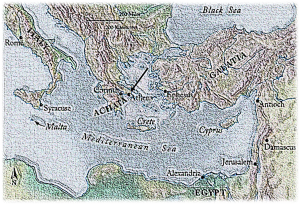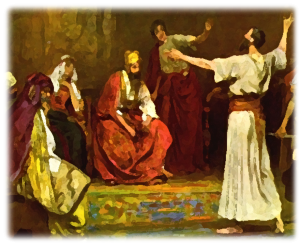ACTS 17: THE UNKNOWN GOD
Like the movies The Last of the Mohicans and The Last Samurai, I wonder what will happen to  the planet when the last pure-blooded Indigenous Australian stops singing i.e. stops remembering through both calling and dance, for the return of what they’ve identified as The Dreamtime. It’s the idea of a place or reality outside of which we now live/experience, though if not ‘lost’ (forgotten) but instead held onto in this life, will ensure a pathway back after this life to what was and what should have been all along. That season when all that we see was being created and daily renewed. The greatest idea, that one supreme idea, that carries an undying hope (faith system) for its return (their return to it) – to how things used to be – where they really belong and where they hope to return to.
the planet when the last pure-blooded Indigenous Australian stops singing i.e. stops remembering through both calling and dance, for the return of what they’ve identified as The Dreamtime. It’s the idea of a place or reality outside of which we now live/experience, though if not ‘lost’ (forgotten) but instead held onto in this life, will ensure a pathway back after this life to what was and what should have been all along. That season when all that we see was being created and daily renewed. The greatest idea, that one supreme idea, that carries an undying hope (faith system) for its return (their return to it) – to how things used to be – where they really belong and where they hope to return to.
It seems to me that fading imprints left behind by this Lord of Life that Paul speaks about in todays chapter, have remained dotted about all over His planet. These are like windows in our cluttered rooms through which humans still have a chance to glimps the sky. So, finding the Creator’s signature hidden in the artwork on a statue in Ancient Greece, or painted on the faces of indigenous Australians, is hugely significant for me. If anything causes me to sit up in my chair with interest this morning or to enter animated discussions with anyone willing to think (like the ‘nobel-minded’ men of Berea or these Athenians in today’s chapter), it’s this topic of our ever-present yet largely unknown, God.
 The Omnipresent Creator is and will always be present and active everywhere; and, today’s chapter is about news of the Creator God’s Handbook for LIFE being spread throughout Asia Minor to reach ancient Athens in the 1st Century AD. It was here that Paul found that ‘signature window to the sky’ on a statue dedicated to the “Unknown God”. But how do the puzzle pieces of indigenous faith in Australia and the mythology in Ancient Greece, connect at all with me today?
The Omnipresent Creator is and will always be present and active everywhere; and, today’s chapter is about news of the Creator God’s Handbook for LIFE being spread throughout Asia Minor to reach ancient Athens in the 1st Century AD. It was here that Paul found that ‘signature window to the sky’ on a statue dedicated to the “Unknown God”. But how do the puzzle pieces of indigenous faith in Australia and the mythology in Ancient Greece, connect at all with me today?
If I extract today’s chapter out of my Maker’s epic storyline for a moment, then give it a closer look, it’s worth noting a couple of things. First, it’s worth remembering that this chapter is part of a full report written by a non-Jewish Doctor to a Roman official called “Most Excellent Theophilus”.[a] They were both educated men who were looking careful at what the Creator God was doing in the world around them. The purpose: so that Theophilus would know with certainty the exact truth about the things he’d been taught. To prove, or not, that this particular God – among all the many Greek, Roman, and other gods – is the One to believe, the One worth following.
The chapter can be split into four parts. Paul’s time in Thessalonica, Berea, and Athens, finishing with his speech on Mars Hill, Athens Greece. That so, the second thing to note is the accuracy  of the locations. If Luke is faking anything in his story, everything in his report would be jeopardized. This Roman dignatory, Theophilus, the first recipient of this report, could write to any of the city officials in these places to ask about trouble in their cities. [v6,9,13,19,22] The Roman communication system was made easy because of their streamlined infrastructure across their empire. Upon checking the details in Luke’s story, if true, then what Luke concludes from what is being said and done, is therefore believable beyond reasonable doubt. Moreover if it were rubbish, our perfect Creator God would have destroyed it long ago, and not miraculously preserved it so the we could read it today.
of the locations. If Luke is faking anything in his story, everything in his report would be jeopardized. This Roman dignatory, Theophilus, the first recipient of this report, could write to any of the city officials in these places to ask about trouble in their cities. [v6,9,13,19,22] The Roman communication system was made easy because of their streamlined infrastructure across their empire. Upon checking the details in Luke’s story, if true, then what Luke concludes from what is being said and done, is therefore believable beyond reasonable doubt. Moreover if it were rubbish, our perfect Creator God would have destroyed it long ago, and not miraculously preserved it so the we could read it today.
Since Paul, a Jewish religious academic, is opening up an ancient storyline written by Jews, it’s natural for him to start first with the Jews. [v1-3,10] If he was trying to change what was previously written and understood, he’d avoid them – preferring instead the uneducated foreigners for his audience. It’s clear that Paul’s explanations are reasonable, since people eagerly took time to examine the Creator’s Handbook (what we now call the 39 books of the Old Testament), and many people who were already “in the know” didn’t reject Paul’s teaching but could see and understand the logic it. [v4,11-12]
This tells me that, if I don’t want to be tricked into believing fairy tales, I just have to examine it for myself. However, that means pulling it apart daily (just as these ‘God-fearing people’ did in today’s chapter) to see for myself whether these things are true. [v11,17] I also have to go right back to all 39 books in the Hebrew scriptures, and not just pick out bits of what we now call the New Testament. I need to start at The Beginning and catch up on everything that the Jews experienced of the Creator God and wrote down in great detail. If we do this, I’m convinced that by the time we get to the last 3rd of this ancient storyline, we’ll be in a better position for seeing clearly that Paul was right: Jesus had to suffer, die, and be raised to Life again if He was indeed the Creator God’s promised “Messiah” – savior/deliverer. [v3]
The rest of today’s chapter is about Paul’s time in Athens. [v16-34] This was the centre of ancient philosophe, and much of what was discussed back then has laid the foundation for many things that we believe/use today. [v21] Our idea of understanding our different personality traits and temperaments for example (Melancholy, Phlegmatic, Sanguine and Choleric), originally came from Greek philosophical academia. If you’ve watched the movie My Big Fat Greek Wedding, you may find a smile crosses your face at the thought of the dad arguing that everything came from Greece!
 But the journey that I’m taking you on through these Breadcrumbs, is no laughing matter. In fact, it’s deadly serious and today’s chapter is clearly about choice. Some were willing to listen and find out more, others sneered, wrote it off as “babbling”, or else become toxic in their rejection of the Creator God’s Masterplan. [v5-8,13,18,32]
But the journey that I’m taking you on through these Breadcrumbs, is no laughing matter. In fact, it’s deadly serious and today’s chapter is clearly about choice. Some were willing to listen and find out more, others sneered, wrote it off as “babbling”, or else become toxic in their rejection of the Creator God’s Masterplan. [v5-8,13,18,32]
It seems easy for us to sit here thinking that these ancient Athenians in today’s chapter, were disadvantaged because they didn’t have the information that we know now. [v20,23] However, I could argue that without the so-called “enlightenment” during the industrial revolution or today’s information technology, they had less to clutter their thinking. Back then, it was a simple question: to believe in the Creator God who made us all [v24-28]; or, to put all our trust into what we see, what can be proven through experience, and what our own hands have made. [v29]
This question remains a matter of life and death even today. Having overlooked our ignorance in the past, the Creator – who’s still an unknown God to many – is now declaring to mankind (His image-bearers) that all people everywhere should “repent” by making a 180◦ change to our worldview. [v30] Why? Because He’s fixed a day when He’ll judge the world in righteousness through a Man whom He has appointed, having given proof to all mankind by raising Him from the dead. [v31]
This isn’t a useless story from 2,000 years ago. This is the day 2,000 years ago, when, for many at the time, the Creator God’s Love broke through…
CLICK to return to today’s “Daily Breadcrumb”
[a] Luke 1:1-4 and Acts 1:1-2